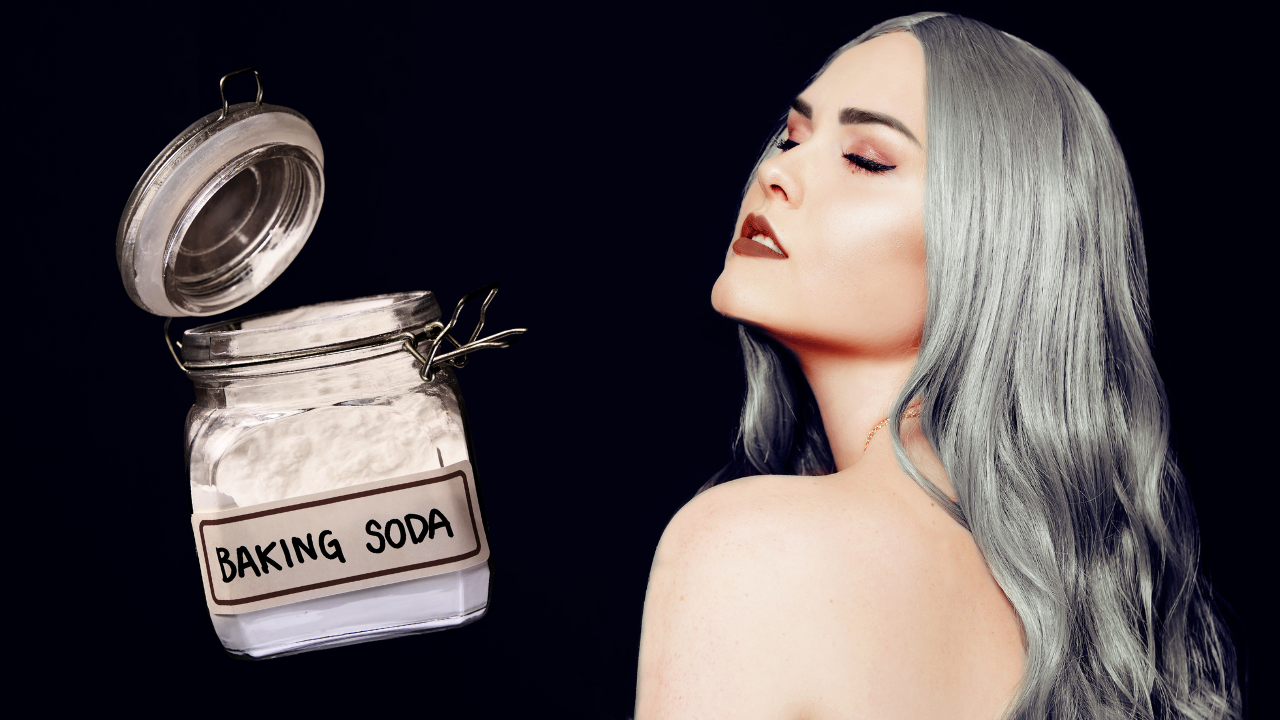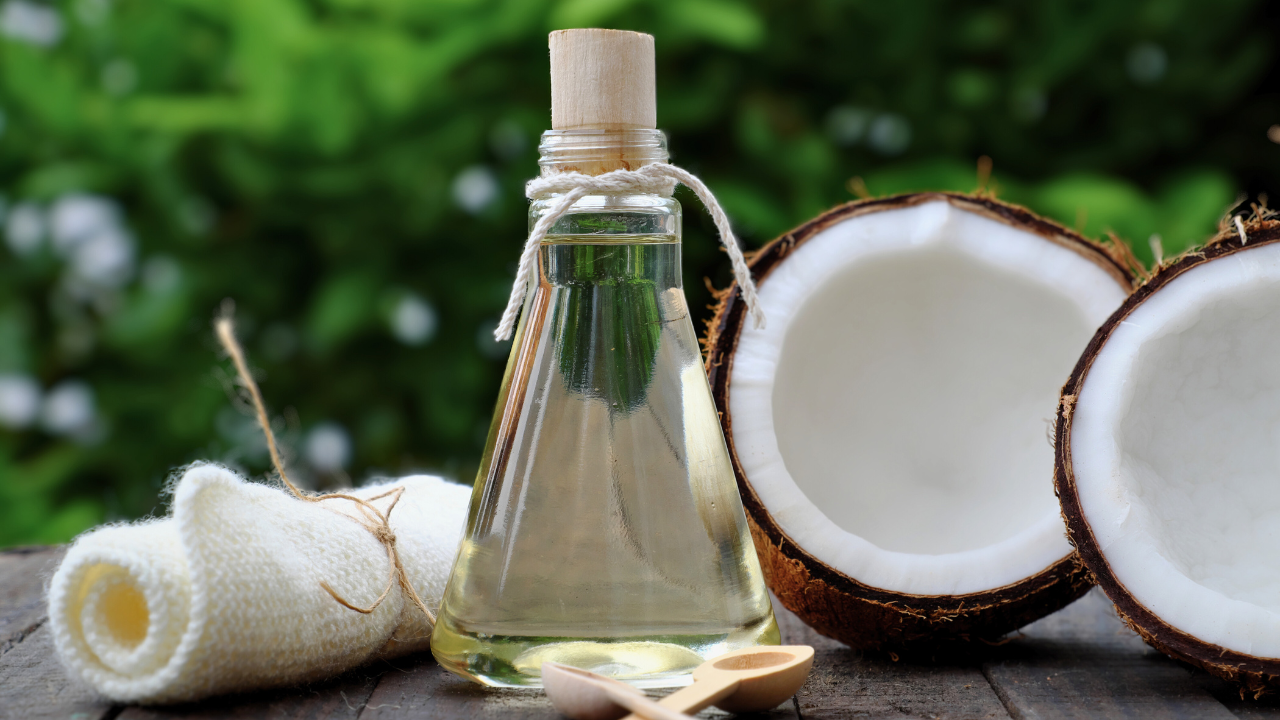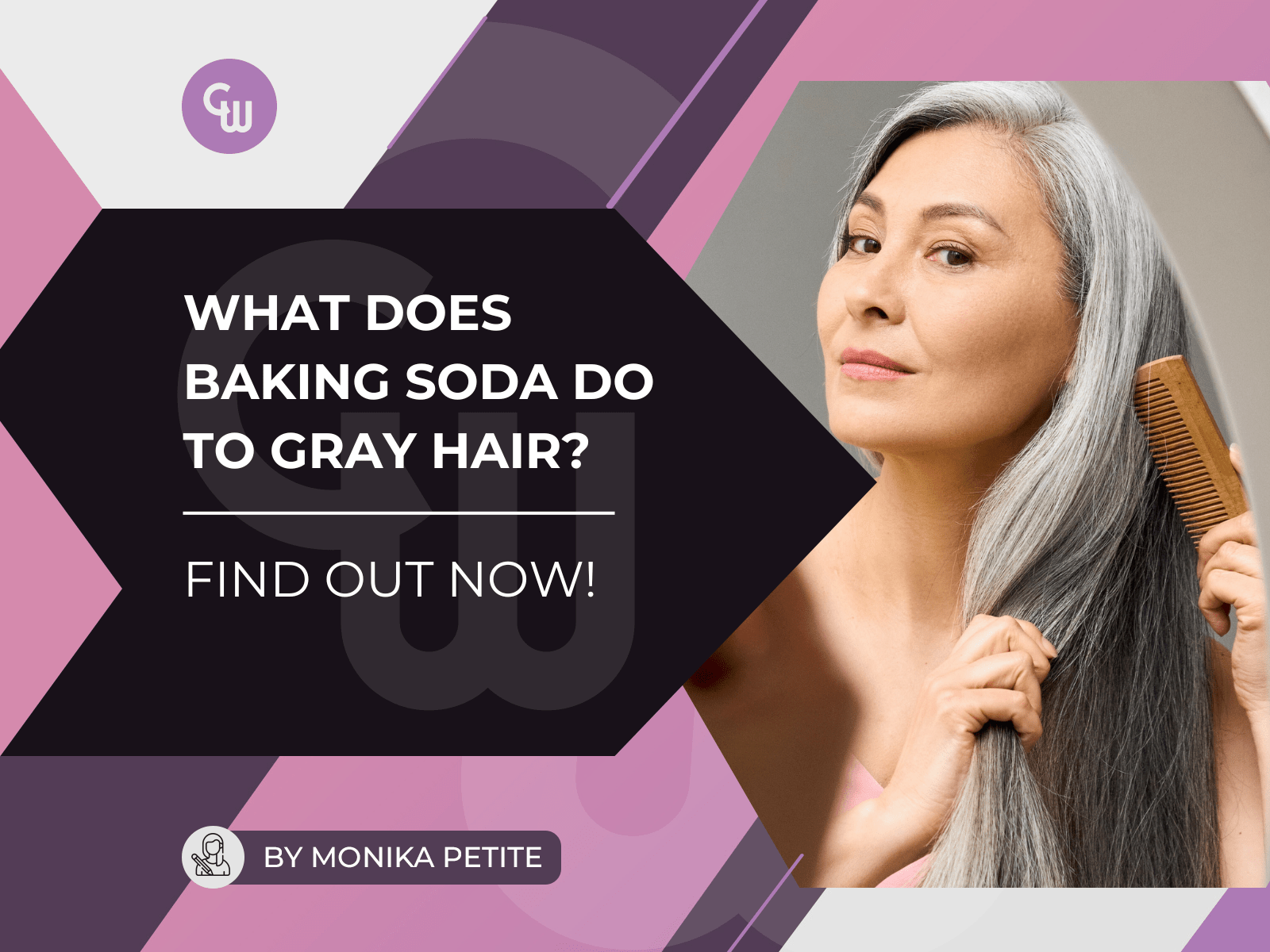Table of Contents
- Key Takeaways
- Understanding Baking Soda and Gray Hair
- Benefits of Baking Soda for Gray Hair
- The Potential Risks: When Baking Soda Can Harm Gray Hair
- How to Safely Use Baking Soda for Gray Hair
- Natural Alternatives for Gray Hair Care
- Tips for Proper Gray Hair Maintenance
- Expert Opinions: What Professionals Say About Baking Soda and Gray Hair
- Testimonials from People Who Have Used Baking Soda on Gray Hair
- Summary
- Frequently Asked Questions
Key Takeaways
- Baking soda can lighten gray hair as well as prevent white hair discoloration and remove impurities but should be used cautiously due to the potential for dryness and fragility in gray hair.
- Moderate use of baking soda can promote healthy hair growth by exfoliating the scalp and may improve hair texture, but overuse can strip hair of its natural oils.
- Natural alternatives like apple cider vinegar and kaolin clay offer similar benefits for gray hair care without the risks associated with baking soda; it’s essential to maintain gray hair by avoiding heat and using nourishing products.
Understanding Baking Soda and Gray Hair
Gray hair can be prone to dryness and breakage, which can lead to hair loss due to a decrease in melanin production. This is why baking soda (sodium bicarbonate) has been incorporated into beauty routines due to its alkalinity with a high pH level. The substance works by lightening gray hair but should only ever be used cautiously as it also affects moisture retention capacity making it brittle.
 Understanding how this baking soda interacts with your grey hair must not be overlooked when deciding whether or not to add it to your hairstyling regimens to preserve optimal healthiness levels of your tresses. It may provide an attractive solution since baking soda will tint strands giving them an ash tone that appears less bleak than pure white hairs might otherwise look like without treatment over time.
Understanding how this baking soda interacts with your grey hair must not be overlooked when deciding whether or not to add it to your hairstyling regimens to preserve optimal healthiness levels of your tresses. It may provide an attractive solution since baking soda will tint strands giving them an ash tone that appears less bleak than pure white hairs might otherwise look like without treatment over time.
Benefits of Baking Soda for Gray Hair
While baking soda can be highly beneficial for gray hair, it's crucial to use it in moderation. Its high alkalinity levels make it great for eliminating mineral buildup from strands and help restore natural shine to dull hair caused by pollution, hair products, and hard water residue accumulation. Its natural pH-balancing qualities help neutralize brassiness or yellow tones in the hue while massaging into the scalp helps unblock hair follicles with dead skin cells, excess oil, etc., thus promoting better growth. To top things off, it can also improve texture making locks silky soft, just remember when using this ingredient a good deep conditioning treatment should follow afterward!
The Potential Risks: When Can Baking Soda Harm Gray Hair

Gray hair naturally requires special care when using sodium bicarbonate, as its high pH level can cause damage and strip the hair of essential oils. This will lead to very dry hair that is brittle and lacks a healthy-looking shine. To prevent this from happening and achieve positive results, experts recommend only moderate use of baking soda in your hair care routine. Too much may be abrasive. The optimal frequency for the application depends on each individual’s specific needs, but one should keep usage levels low most times anyway.
Hair health is a matter requiring constant attention so ensure that you find an appropriate balance between what works well with your particular type and other relevant factors like regular deep conditioning treatments etc., to maintain healthy locks.
How to Safely Use Baking Soda for Gray Hair
Have white or gray hair and are curious about how to use baking soda safely? You’ll want to get the ratios just right. To wash your hair with it, mix one teaspoon of baking soda with a cup of water.
As for making a mask, combine 1/4 cup plus one tablespoon of soda and some aloe vera gel as an added moisturizer that will also bring soothing benefits. Apply the resulting mixture all over your strands before leaving it on for 10 minutes then rinsing off thoroughly - don’t forget conditioner afterwards! Frequency is key when using this baking soda. Too much can deplete natural hair oils from white or gray locks, which are already prone to dryness and breakage thus causing harm to the hair shaft.
Natural Alternatives for Gray Hair Care
If you’re wary of using baking soda on your gray hair, there are plenty of natural options for taking care of it.
Apple cider vinegar and kaolin clay can make the strands smooth and bring out their natural color and shine while also acting as a natural clarifying agent. Both pose no specific risks to gray hair like chemical products would.
Coconut oil also provides nourishment to sensitive skin to improve its strength, whereas the apple cider vinegar treatment enhances its luster when used after shampooing.

Fuller’s Earth is an excellent choice as well because it cleanses the scalp by getting rid of any impurities without damaging gray hair in the process – a great alternative solution!
Tips for Proper Gray Hair Maintenance
Healthy hair begins with proper maintenance, and this especially applies to gray locks. Utilizing the right shampoo and conditioner specifically formulated for grey strands can help attain stunning results.
Heat styling tools are a big no-no as they may cause irreparable damage to already dry and coarse grey tresses. Allow your hair to naturally air-dry instead of opting for hot accessories along with some natural products.

Lastly, don’t forget about employing masks rich in keratin or biotin alongside other nourishing ingredients like Vitamin E – an effort that can yield vibrant-looking gray hair's texture that is moisturized, strong yet elastic! Hair oil infusions too play a significant role in replenishing grey hair with its essential oils thus restoring luster to your silver crowning glory while avoiding hair dye altogether will keep it far from harm’s way.
Expert Opinions About Baking Soda and Gray Hair
Regarding using baking soda for gray hair, experts endorse its potential benefits such as controlling pigmentation loss, lightening the strands, and providing texture. It can be used on coarse grey locks to make them smoother too by eliminating product buildup from oils or soaps. Some dermatologists point out that this process could bring about harm in the form of scalp discomfort and draining away natural oil levels.
For a safer approach, they recommend diluting baking soda with water first then finishing off with an appropriate conditioning treatment due to drying effects associated with usage. All things considered, utilizing baking soda correctly is key when trying to achieve healthier hair without unwanted side effects!
Testimonials from People Who Have Used Baking Soda on Gray Hair
When it comes to using baking soda on gray hair, many people have been discussing their own experiences. They claim that this method of lightening has enabled them to get the ashy or faded appearance they wanted, while also neutralizing unpleasant tones such as yellow and brassiness in white hair. Those who used baking soda reported improved texture and manageability in their hair along with a soothing sensation.
If you are curious about how this natural remedy might work for your own, then feel free to give it a try! Keep in mind moderation is key when utilizing sodium bicarbonate on grey hair due to dryness being an issue if done too often. It can be combated by doing conditioning treatments, every time you wash your hair with baking soda.
It is possible to see benefits from incorporating some bicarbonate into one’s routine but only do so sparingly to help avoid any potential negative consequences like damaged strands.
Summary
When it comes to taking care of gray hair, baking soda can be a great option due to its ability to remove buildup, neutralize yellow tones, and enhance the growth of your locks. Though beneficial in these ways, using it excessively may lead to damage so natural alternatives such as apple cider vinegar, coconut oil, or kaolin clay should also be considered when caring for one’s hair with baking soda. It is therefore important that you understand all ingredients used before utilizing them on your scalp while keeping moderation in mind at all times.
Frequently Asked Questions
What happens if I add baking soda to my gray hair?
Gray hair can be affected detrimentally when baking soda is added to it, as the natural oils will become stripped and cause breakage of dry hair due to excessive dryness and brittleness.
What does vinegar do for gray hair?
Apple cider vinegar rinse on gray hair can be an effective way to address common issues such as dullness, hair loss, dryness, and even the loss of hair. Not only does it help in cleansing the scalp and nourishing follicles for better nutrient absorption, but also provides relief from some unwanted ailments like hair fall.
Can baking soda promote hair growth?
Baking soda can be beneficial for hair growth by purging any dirt, buildup, or dead skin from the scalp and hair strands. This simple but effective exfoliation method is essential in keeping your tresses healthy and strong.
By regularly using baking soda as a scrub on your head, you are enabling yourself to experience optimal health of locks while potentially supporting an increase in the rate at which they grow too.
What is the recommended method for using baking soda on gray hair?
To maintain gray hair, using baking soda sparingly can help clear away any residue from oils and soaps that may be present. Mix it with water to do this, then follow up with a deep conditioner since the solution could potentially dry out your locks.
Are there any risks associated with using baking soda on gray hair?
It is important to be aware of the risks when using baking soda on gray hair, due to its high pH level. This could result in damage and breakage as it can strip away natural oils from the scalp or hair shafts. Dryness may also occur, which would leave your locks feeling brittle if done too often without proper care taken for grey tresses afterward.










